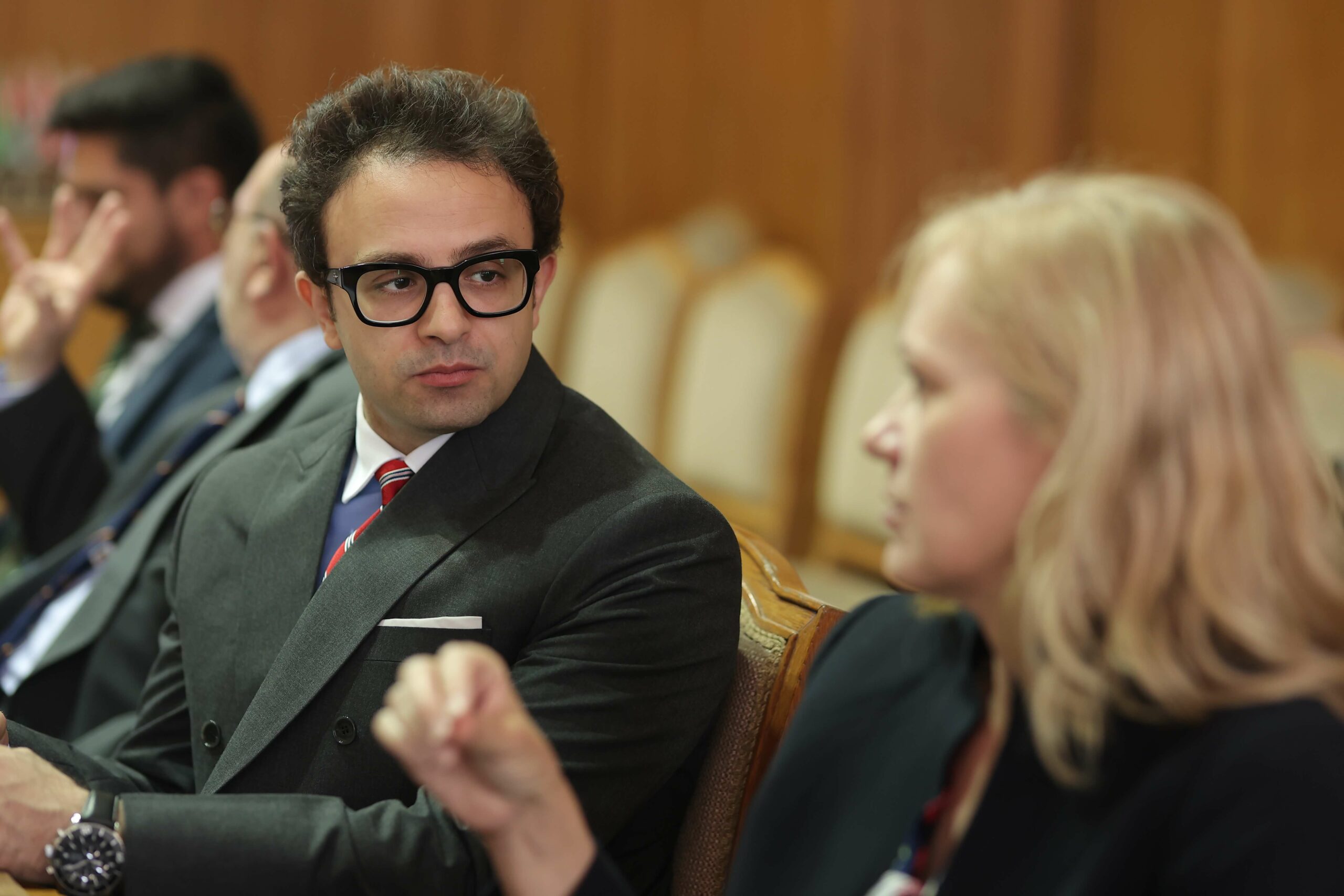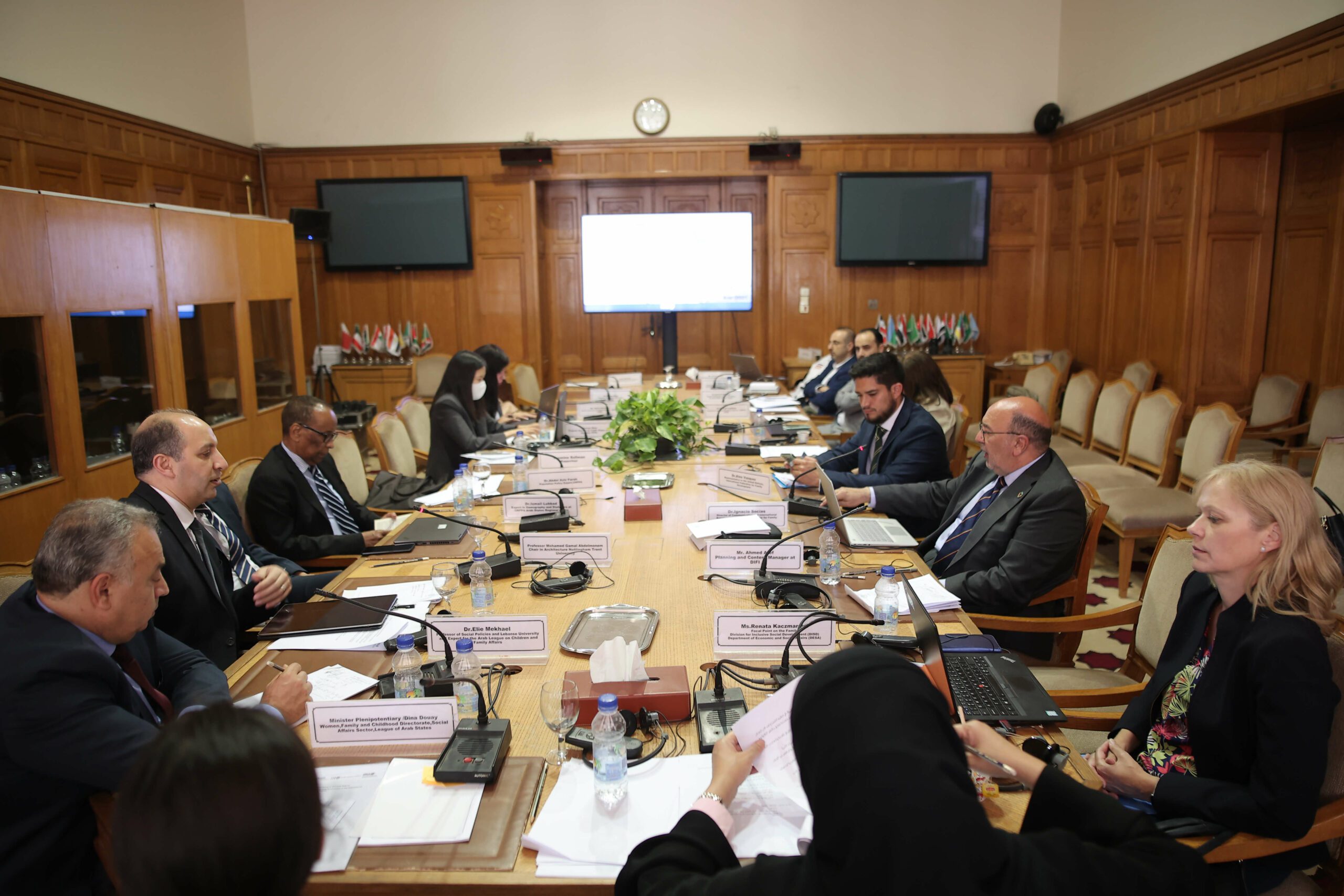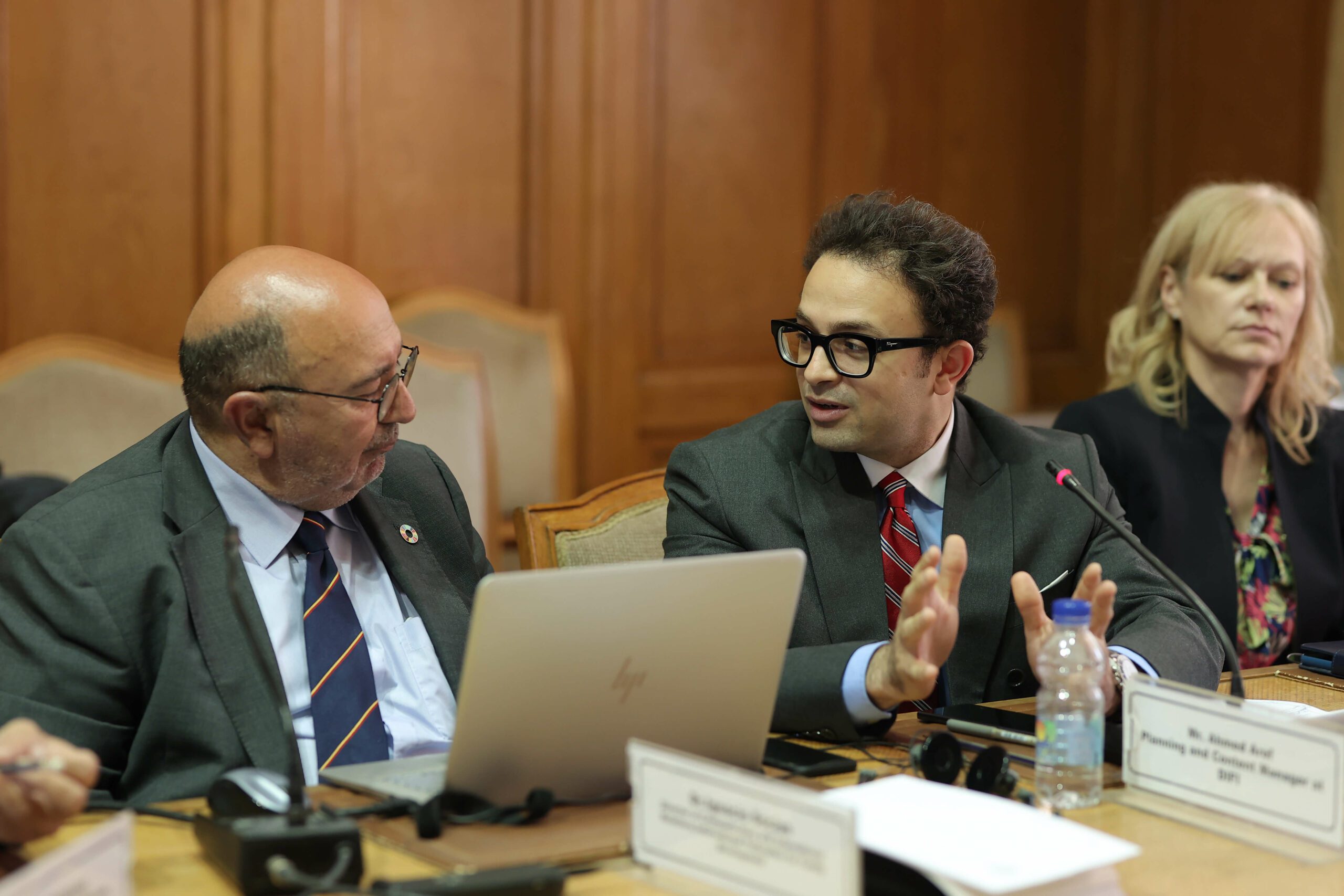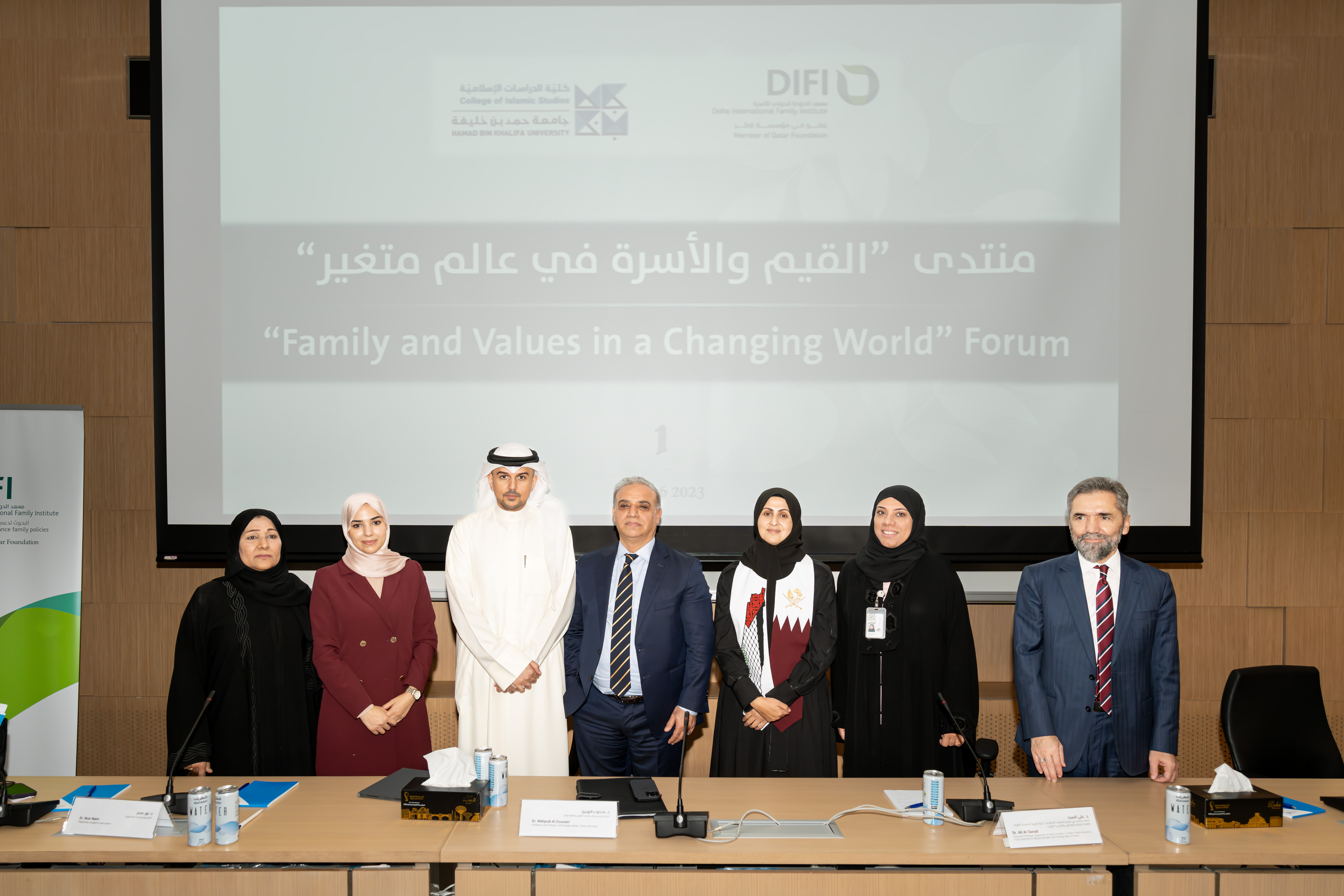
Dialogue Organized by the Doha International Family Institute (DIFI). Topic: As They Raised Me From Childhood: Specialized Programs to Better Parenting





Background
The Department of Women, Family and Childhood in the Social Affairs Division at the General Secretariat of the League of Arab States, in partnership with the Doha International Family Institute (DIFI), a member of Qatar Foundation for Education, Science and Community Development, the United Nations Department of Economic and Social Affairs (UN DESA), the United Nations Population Fund Arab States Regional Office, and the International Federation for Family Development (IFFD), is organizing an expert group meeting (EGM) in preparation for the commemoration of the 30th anniversary of the International Year of the Family (IYF). This meeting will represent the Arab Region and will address the topic of technological changes and the family.
In 1994, the United Nations General Assembly proclaimed it as the IYF in its resolution 44/82 of 9 December 1989. Activities for IYF seek to promote the basic human rights and fundamental freedoms accorded to all individuals by the set of internationally agreed instruments formulated under the aegis of the United Nations, and they are undertaken at all levels – local, national, regional and international. The IYF follow-up activities focused on the promotion of family policy development, especially in the areas of poverty reduction, work-family balance and intergenerational relations. Upon the adoption of the Sustainable Development Goals, the follow-up activities aimed at supporting the achievements of SDGs and targets through family policies.
In 2014, DIFI organized the International Conference on “Empowering Families: Pathway to Development” in commemoration of the IYF+20. The conference was held under the patronage of Her Highness Sheikha Moza bint Nasser. The conference concluded with the Doha Call to Action, which was circulated within the UN as well as among co-signing non-governmental organizations. Moreover, in preparation for the international conference, DIFI organized regional expert group meetings with pro-family non-governmental organizations.
Since its establishment, DIFI has played a crucial role in advocating for family policies within the international agenda and has collaborated with the UN in multiple facets in doing so. Taking into consideration DIFI’s leading role in the preparation and implementation of the previous IYF anniversaries, DIFI aims to lead the regional preparations for the IYF+30 and hold the international conference to be held in commemoration of the 30th anniversary of the IYF in 2024, as well as a number of preparatory activities to be conducted prior to the conference.
In June 2020, the Focal Point on the Family, Division for Inclusive Social Development, Department of Economic and Social Affairs (UNDESA) organized an expert group meeting in preparation for the IYF+30 and addressed progress made with regards to family policy development at the international level and identified 4 mega-trends as emerging issues to be tackled leading up to the commemoration of the IYF+30.
The 4 mega-trends are: Demographic Trends, Migration and Urbanization, Climate Change and Technological Changes.
Context
Research shows that advancements in the development and implementation of new technologies has a lasting and large impact on societies, from an economic, social, cultural and political perspective (Goll & Zweirs, 2018). There is an evident relationship between new technology and social modernization, and this relationship could either affect the livelihoods of families as well as individuals immensely, in both positive and negative way. Yet, it is important to note that the differences in the Arab region countries use of new technologies and adaption of it vary immensely. For example, in the 2015 Networked Readiness Index (NRI), a part of the World Economic Forum’s “Global Information Technology Report” found that the top 10 countries in the MENA region that harnessed information technology to advance competitiveness and wellbeing of its people varies from the UAE, ranking 23rd globally to Egypt ranking 94th, noting that the top 5 counties were all Gulf region countries (Goll & Zweirs, 2018).
That being said, new technologies have affected the wellbeing and development of families in the Arab region immensely. For example, the topic of fertility and assistive reproductive technology is a growing phenomenon impacting families today. On the other hand, increased telecommuting has become a major part of families’ lives, especially during the COVID-19 pandemic, which has revolutionized learning, work and social life and impacted family relations and gender roles and responsibilities. The division of labor as well as the traditional roles and responsibilities between family members are also changing. Additionally, technological advancements have provided women with the opportunity to work from home, especially those whose job opportunities are limited. Digital parenting and the impact of new technologies on parenting styles and child development is a growing topic. Moreover, policies and programs are being shaped to build on technological advancements, reaching larger populations around the region.
Objectives
Proposed Topics
Location
League of Arab States in Cairo
Dates:
2&5 June 2022
Day 1: 2 June 2022
08:30-09:00 Registration
09:00-09:30
09:30-10:45 Technology, Cyber-Bullying and Violence
This session will highlight the role technology plays on increasing and
mitigating cyber-bullying and violence
Guiding questions:
– In what ways does technology increase or mitigate cyberbullying and
violence?
– What policies might help combat cyber-bullying and violence?
Keynote presenter: Dr. Luay Shabaneh, Regional Director, UNFPA
11:15-12:30 Technology as a Facilitator and Obstacle to Work-Family balance & TheChanging Socio-Spatial Dynamics of Family Living and Care for Older People in the 21stCentury
This session will focus on the role of technology on work-family balance.
Guiding questions:
– What is the role of technology in supporting work-family balance?
– What are the advantages and challenges that families face in supporting work-family balance using technology?
– What is the role of technology in new family living arrangements and care for older persons?
Moderator: Ms. Renata Kaczmarska, Focal Point on the Family, UN DESA
Keynote presenter: Professor Mohamed Gamal Abdelmonem, Professor of Architecture,Nottingham Trent University
13:15-14:30 Technology and Family Wellbeing in the Arab Region
This session will focus on the role of technology on family wellbeing and older persons, and it will critically discuss the impact of digital addition on family cohesion.
Guiding questions:
– What are the risks of digital addition on child wellbeing and family cohesion?
– What policies can support parents and children in limiting digital addition and strengthening family cohesion?
– Does technology design play a role in digital addiction?
– Is there anything special about Arab families when dealing with digital addiction?
– In what ways did technology enhance/challenge family members’ relationships?
– What are the impacts of technology on elderly wellbeing?
Moderator: Mr. Ahmed Aref, Content and Planning Manager, DIFI
Keynote presenters:
Dr. Achraf Othman, Head of ICT Access Innovation and Research Section,MADA
Dr. Raian Ali, Professor in Information and Computing Technology at HamadBin Khalifa University
Day 2: 5 June 2022
09:00-10:15 Arab Family Strategy
This session will shed light on the strategic nexus of the impact of technology on the Arab family.
Keynote Speaker:
Dr. Elie Mekhael, Professor of Social Policies at Lebanese University and an Expert for the Arab League on Children and Family Affairs
10:45-12:00Technology, Marriage and Fertility
This session will focus on the ways that technology has impacted marriage rates, marital relationships and fertility.
Guiding questions:
– What are the major ways that technology has impacted marriage rates?
– What are the impacts of technology on marital relationships and stability?
– In what ways does technology affect quality family life and fertility decisions?
– What family policies might help countries improve fertility rates?
Moderator: Dr. Abdel Aziz Farah, Population Policy Expert, UNFPA
Keynote presenter: Dr. Ismail Lubbad, Population and Development Advisor, Regional Office of the United Nations Population Fund for the Arab States
12:45-14:00 Technology as a Facilitator of Parenting Education
This session will examine the impact of digital parenting on family wellbeing.
Guiding questions:
– What are the advantages and challenges parents face with regards to technology as a facilitatory of parenting education?
– What policies can support parents and children in bridging the digital gap between them?
Moderator: Dr. Alex Vazquez, Representative to the UN, International Federation for Family Development
Keynote presenter: Dr. Ignacio Socias, Director of Communication and International Relations, International Federation for Family Development
14:00-14:30 Closing Remarks
Speaker:
Dr. Sharifa Al Emadi, Executive Director, DIFI
Ms. Renata Kaczmarska, Focal Point on the Family, UN DESA
CAIRO EGM RECOMMENDATIONS: Click Here
For photo gallery click here



The Doha International Family Institute (DIFI) has launched the OSRA research grant in its sixth cycle which is a research grant on Arab families and family policy related issues.
Find Out More